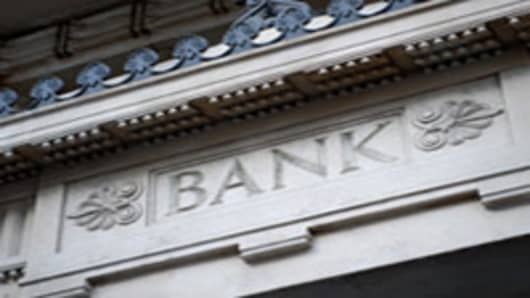German “bad bank” agencies holding billions of euros of Greek debt have still to decide whether to join a bond swap designed to cut Athens’ refinancing burden as part of an EU bail-out.
Two of the German banks that are among the country’s largest holders of Greek bonds have also to commit themselves to the 135 billion euro debt swap plan set to be launched next month.
The uncertainty over which institutions will support the deal comes as Greece is warning that the swap might not go ahead if fewer than 90 percent of private investors agree to participate.
Some of Germany’s biggest holders of Greek debt are agencies set up with public sector support to wind down toxic and unwanted assets that had to be unloaded from stricken banks’ balance sheets during the financial crisis.
About 7.4 billion euros of Greek sovereign debt is held by FMSWertmanagement, a “bad bank” to which 175 billion euros in assets were transferred from Hypo Real Estate , a property lender.
Erste Abwicklungsanstalt, to which assets from WestLB were transferred, has a further 1.1 billion euros of Greek public sector exposure.
Because the agencies are not banks and are backed by public sector guarantees, the extent to which they may take part in the bond swap aimed at private creditors remains unclear, in spite of their large holdings.
FMS holds more than twice as much Greek debt as Commerzbank , which is Athens’ biggest private-sector German creditor.
EAA has taken a 21 percent writedown on its Greek holdings, in line with advice from a German accounting body following the announcement last month of the private-sector restructuring offer, which is being co-ordinated by the Institute of International Finance, a global banking sector lobby group.
However, EAA has said it, “Remains to be seen whether or to what extent EAA will participate...? in the IIF offer of private creditors and suffer losses from the restructuring of Greece’s liabilities”.
FMS also told the Financial Times that it had not taken a decision on participation.
All of EAA’s Greek debt matures before 2020 and so would, in theory, be eligible for the IIF-backed swap, under which bonds due by that date would be exchanged or rolled over. Most of FMS’s Greek assets mature after 2020.
Germany’s largest co-operative bank, DZ Bank , and its largest public-sector bank, Landesbank Baden-Württemberg, have also yet to confirm whether they will support the IIF-backed deal.
Greece has set a deadline of September 9 for banks to make non-binding offers.
DZ Bank, which in last month’s EU bank stress tests reported 731 million euros of Greek exposure, is likely on Monday to announce partial writedowns along with its financial results for the first half of 2011.
LBBW said last week it had written down its Greek state exposure by around 50 per cent to about 400 million euros.
Commerzbank, Deutsche Bank and BayernLB have all given explicit backing to the IIF initiative, as have insurers Munich Re and Allianzand DekaBank, an asset manager.


